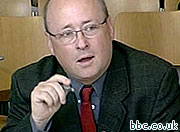British proposals to create genetically modified babies with three or four biological parents should be rejected, a new report says.
The report, written by bioethics expert Dr Calum MacKellar, says the techniques that are being discussed may carry medical risks for children, and for future generations.
The plans also raise profound ethical questions about the destruction of embryos in research, he says.
Understand
Dr MacKellar believes the proposals, put forward by the Government’s embryology regulator, should be rejected.
His report has been published by The Christian Institute, to help Christians understand the issues involved.
The full report can be viewed here.
An official public consultation on the proposals ends soon, on Friday 7 December.
Less controversial
Those in favour of the plans say the aim is to avoid mitochondrial diseases being passed from mother to child.
But Dr MacKellar says alternative ways of doing that are already being pursued by scientists and they are far less controversial.
He warns of the potential psychological effects on a child with three or four parents and says the proposals put forward by the Human Fertilisation and Embryology Authority (HFEA) are not “morally acceptable”.
Breach
He also says they are a breach of international laws put in place to protect human rights and human dignity.
But the chairman of the HFEA says the decision is of great importance to families affected by disease and is “of enormous public interest”.

